Your Cart is Empty

September 09, 2021 7 min read
Ask any dermatologist, skincare fanatic, or that person you know who looks 20 years younger than their true age what their secret is and they'll likely have the same answer -- sunscreen. We know the sun damages and ages skin more than any other factor. Because the sun can penetrate the deepest layers of the dermis, every skin type and pigment is susceptible to photoaging, but it can manifest differently. For example, those with pale skin may develop sunburn, blisters, and even skin cancer. Those with darker skin tones are more likely to develop melasma but are also susceptible to skin cancer.
Take our quiz and find which supplements your body is craving.

UVA rays can damage the skin at all levels, from the surface layer (epidermis) down deep into the dermis. UVB rays are more likely to damage DNA in the epidermis and can cause photoaging and precancerous cells to form. Even if you aren't hanging out poolside, sunscreen is a must, even in winter. As our options for sunscreen products continue to grow, we're learning more about which forms, ingredients, and SPF levels are safest and most effective for the skin and our waterways.
A 2012 report by Marine Safe found that as many as 82,000 different chemicals and up to 14,000 tons of sunscreen end up in the ocean per year. These chemicals are slowly and steadily bleaching coral reefs and killing marine ecosystems. Sunscreens containing the ingredients PABA, octocrylene, oxybenzone, and octinoxate can damage the human body and oceans in the following ways:
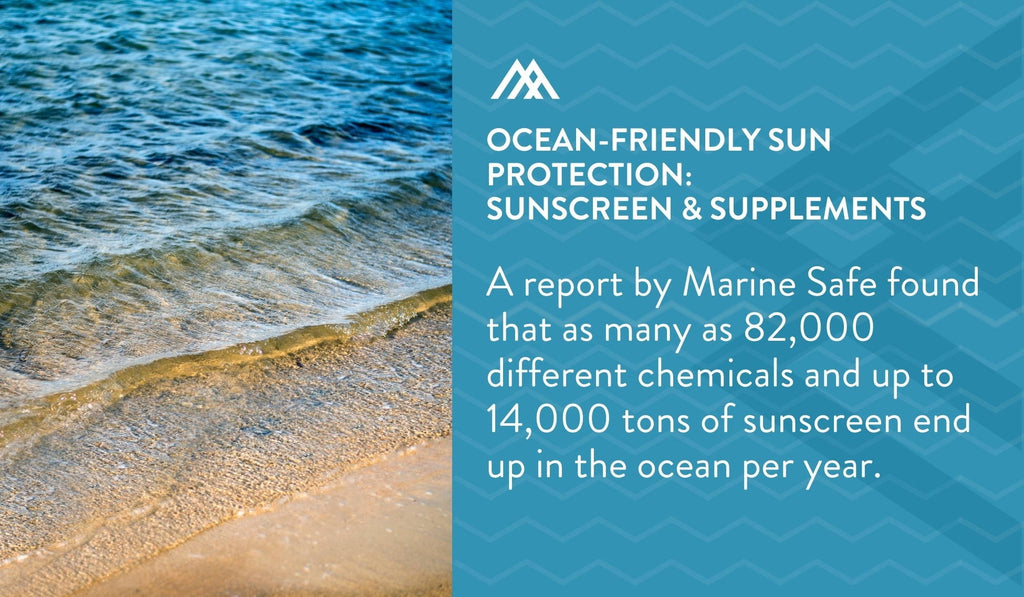
Sunscreen sprays also disperse these harmful ingredients on the land and can contaminate the sand.
The damage has become so widespread that certain countries and US states, such as Hawaii, have prohibited the sale of sunscreens made with oxybenzone and octinoxate altogether. Other island nations such as Palau, Bonaire, and Aruba have followed suit with this legislation in the fight against climate change.
Despite all the concern chemical sunscreens have caused, dermatologists agree daily sunblock use is still an absolute must. Thankfully, reef-safe natural sunscreens are an eco-friendly and effective alternative. The active ingredients in mineral-based sunscreens, also referred to as natural sunscreens, cannot penetrate the skin and cause endocrine disruptions. And don't worry, modern sunscreens won't leave a thick white cast on your skin either!
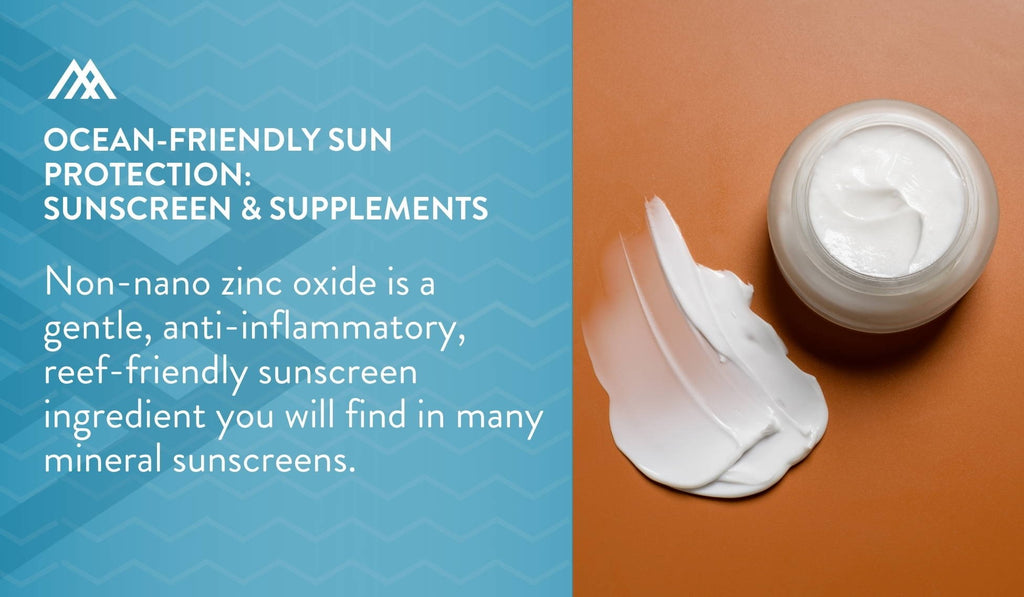
When it comes to sunscreen SPF, more isn't always more. At least not linearly! SPF 40 does not offer double the protection of SPF 20. According to Very Well Health:
Need some advice on how to choose a sunscreen lotion? Many online retailers, such as Amazon, have a wide variety of safe, mineral sunscreens. To help you narrow down your options, here's a quick "checklist" to keep handy as you browse through the personal care aisle or online:
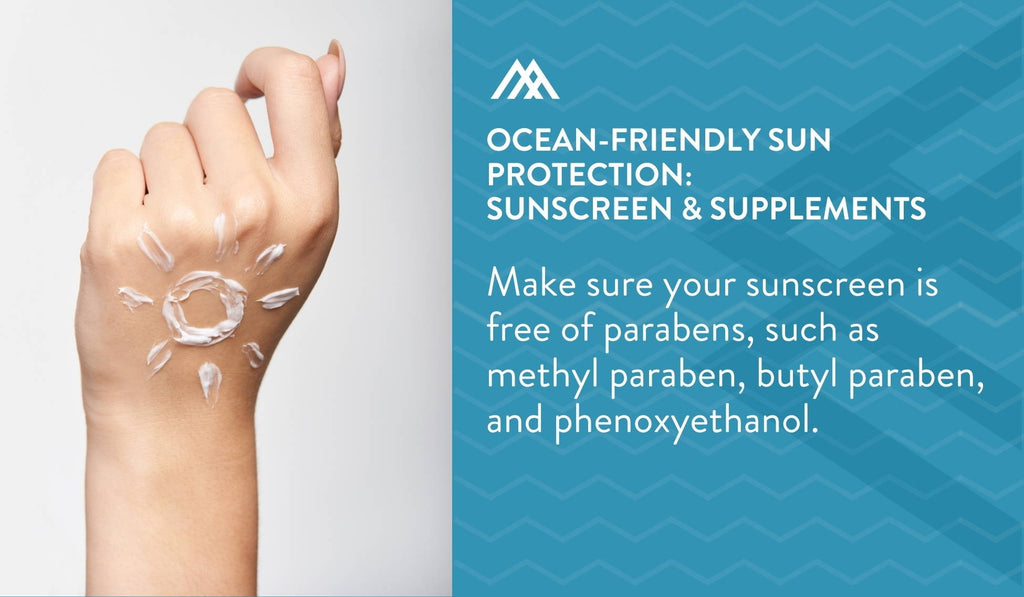
Many dermatologists agree that a water-resistant, mineral sunscreen lotion with SPF 30 or SPF 35 should do! Just remember to reapply every hour or so, especially if you are swimming.
Protecting skin from the "outside-in" is not the only way to ensure your skin is sunburn-proof. Certain vitamin and mineral supplements may be able to reduce sun damage when used alongside daily sunscreen use.These supplements are NOT a substitute for sunscreen. Instead, they may help to protect your skin from further damage.
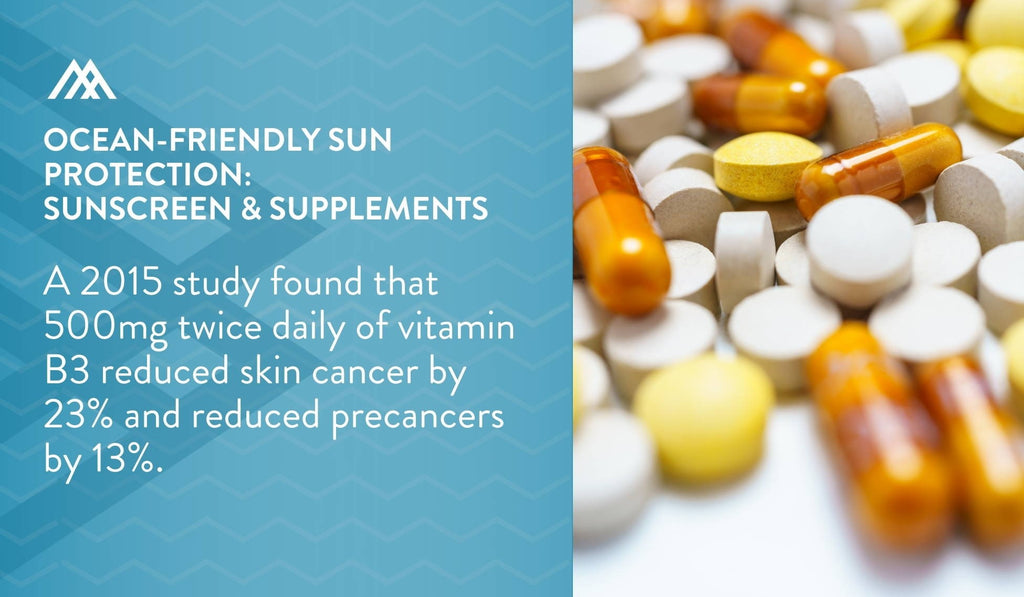
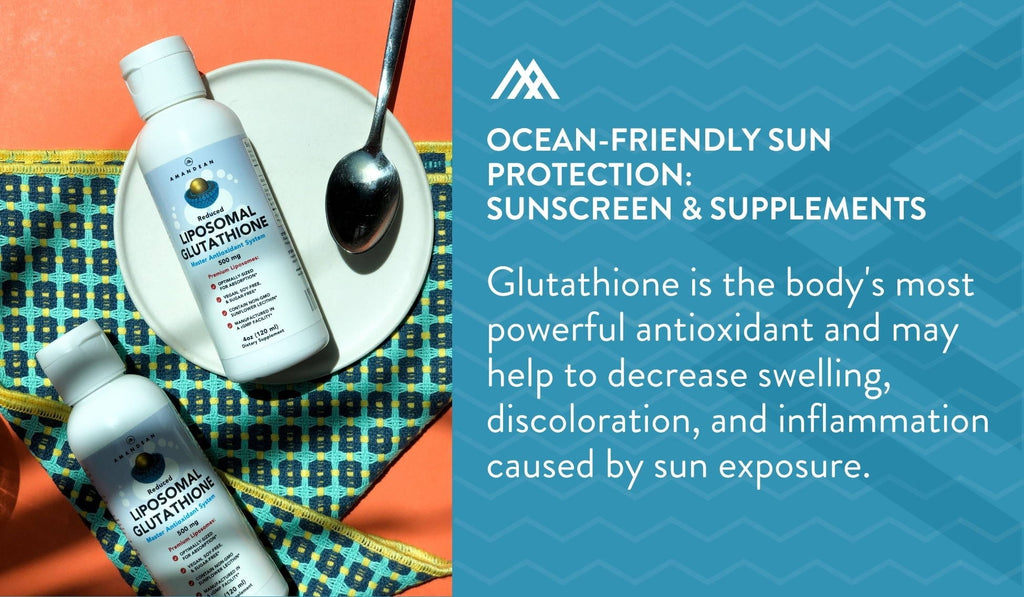
Say goodbye to cakey, white sunscreens that clog your pores and bleach coral reefs. Whether your skin-prep starts once you've staked your spot on the sand, or you've been preparing with daily supplementation for weeks, there are plenty of skin-safe and reef-safe alternatives that can protect your skin from the sun without interfering with marine life.
Ready to start your hunt for the reef-safe and skin-smart sunscreen? We did the work for you! Here are our top 5 reef-safe sunscreens to carry you through summer and the rest of the year!
A 2012 report by Marine Safe found that as many as 82,000 different chemicals and up to 14,000 tons of sunscreen end up in the ocean per year.
Non-nano zinc oxide is a gentle, anti-inflammatory, reef-friendly sunscreen ingredient you will find in many mineral sunscreens.
Compared to zinc oxide, titanium dioxide is not quite as good at protecting against both kinds of UV rays.
Make sure that your sunscreen is free of parabens such as methyl paraben, butyl paraben, and phenoxyethanol.
Many dermatologists agree that a water-resistant, mineral sunscreen lotion with SPF 30 or SPF 35 should do.
Glutathione is the body's most powerful antioxidant and may help to decrease swelling, discoloration, and inflammation caused by sun exposure.

December 12, 2025 7 min read
Achieve luscious locks with collagen for hair. Try Amandean’s premium collagen supplements for stronger, healthier hair.

December 12, 2025 10 min read
Collagen packets by Amandean make skin, joint, and hair support easy on the go. Learn how collagen packets work and upgrade your wellness routine today.

October 17, 2025 8 min read
Find out why creatine is better for vegans! Boost your wellness game and unlock peak performance with Amandean's premium supplements today.